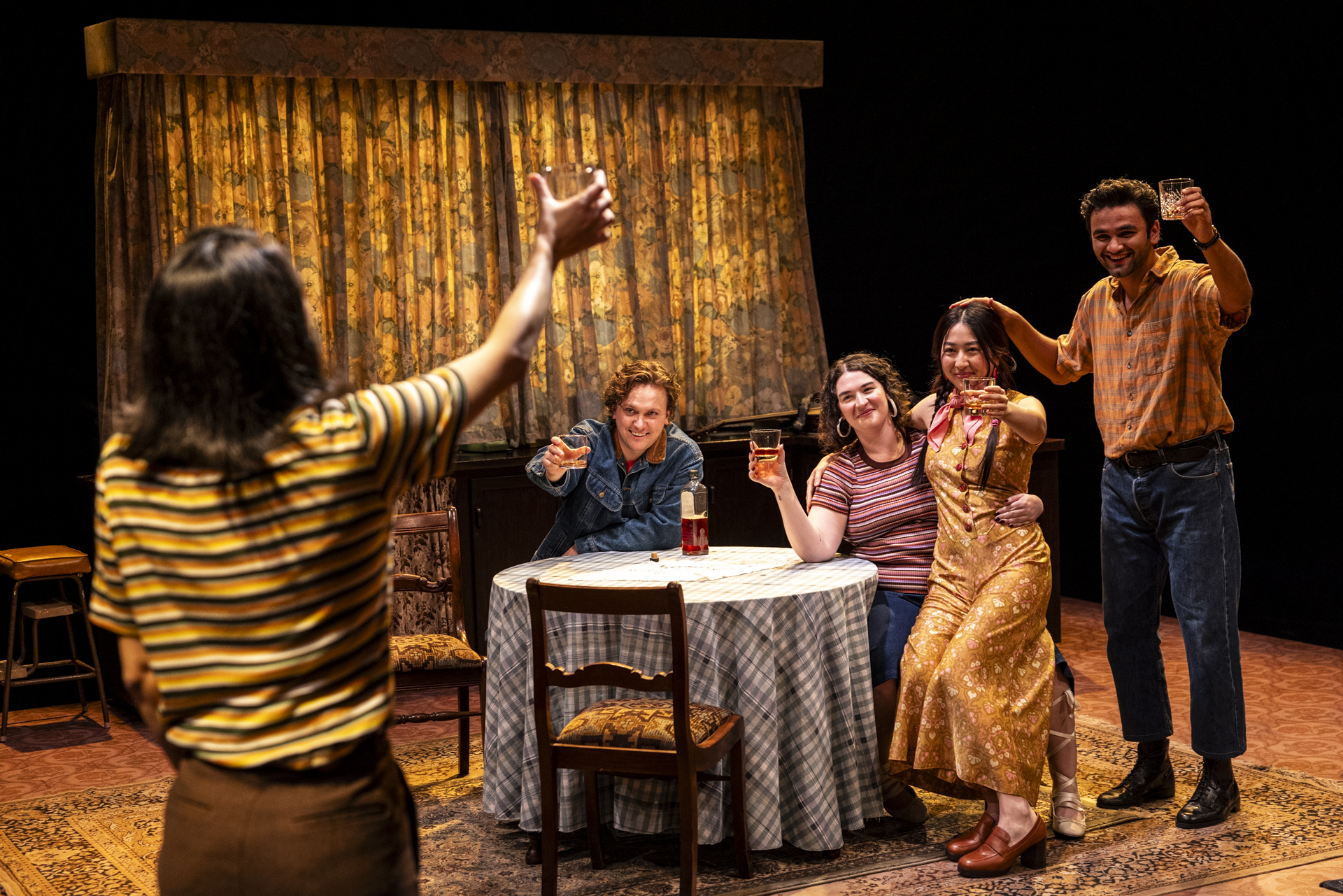A thoughtful display of friendship and loss.
Never Closer returns to Belvoir St Theatre after its debut in 2022, when it featured in the Theatre’s indie 25A program. Set in Northern Ireland amidst The Troubles, its depiction of a surprise reunion of five high school friends is wonderfully nuanced, intricately detailed, and often shocking – resulting in a compelling show overall.
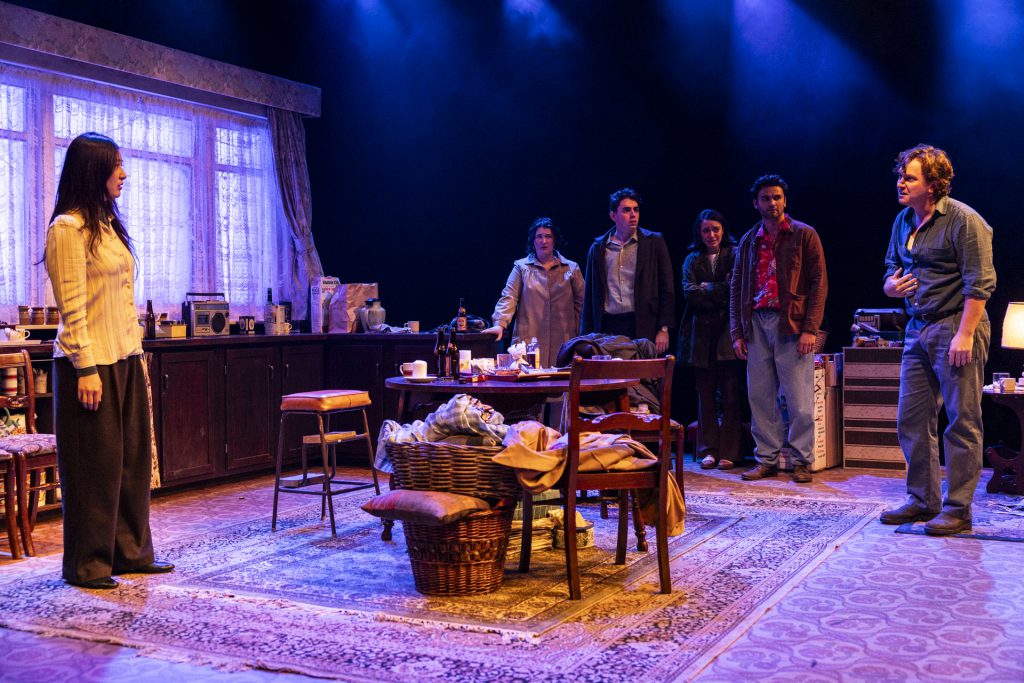
Never Closer takes place in 1980s Donegal. It’s Christmas Eve, and Deirdre (Emma Diaz) is in her family home, alone and comfortable. Then Jimmy (Raj Labade) unexpectedly shows up. And Mary (Ariadne Sgouros). And Conor (Adam Sollis). The four of them haven’t caught up in years, despite being close friends (or sometimes more, albeit casually) in high school. A few whiskeys in to their impromptu reunion and the final member of their old friend group, Niamh (Mabel Li), enters. She’s back in town, having moved to London long enough ago to lose her accent. When overseas, she met a British boy called Harry (Philip Lynch). He shows up too.
It’s an obviously humorous setup, and many interactions – nostalgic or awkward – play up to this. But Director Hannah Goodwin also imbues a strong tension within the reunion. There are numerous reasons for this. Every character has a past they are not proud of, driven by a mix of alcoholism, abandonment, or unpursued love. They have each taken different paths in life, not always to the rest of the group’s approval. And the ongoing religious and social tensions of The Troubles continue to raze Northern Ireland. Goodwin’s direction allows those pressure points conjoin and build up to a cathartic release of love, pain, hatred, and aggression all in less than 2 hours.
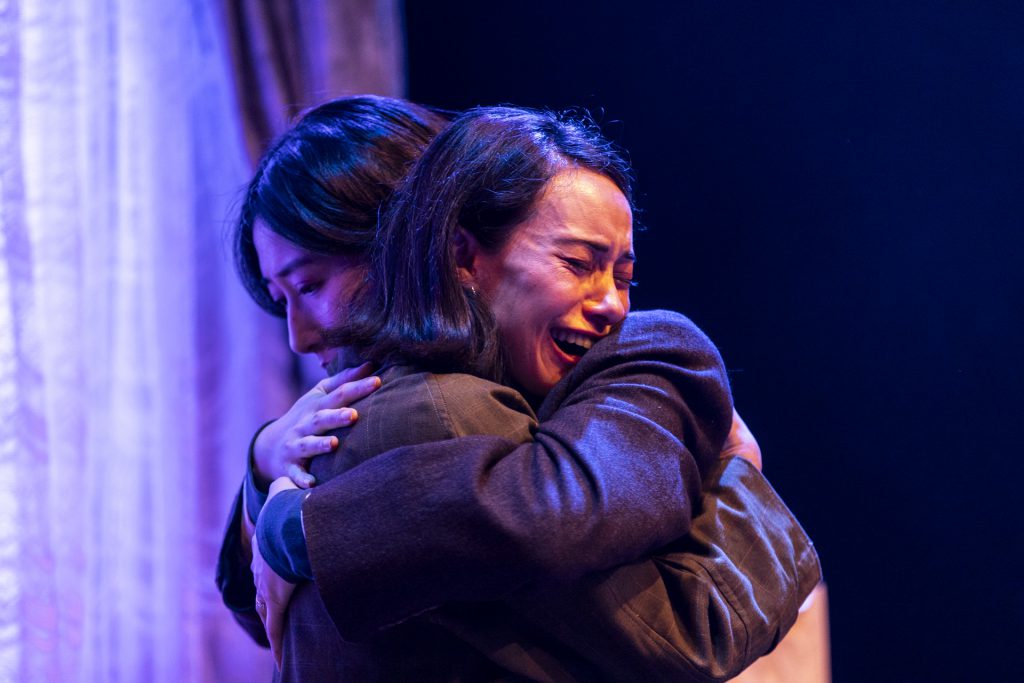
The script (courtesy Grace Chapple) is superb. Irish humour, in all of its glorious dry wit, is on full display. The inclusion of Irish slang and Irish phrases is very useful (and welcome) in this regard. Fortunately, the humour does not detract from the play’s darker moments. Chapple’s script finely balances the show’s exploration of its various themes, keeping the audience engaged no matter what the mood is. Though Goodwin’s decision to move fast means that Never Closer jumps quickly between humour and drama, Chapple’s story can still have its intended impact if one keeps pace.
Notwithstanding these strengths, the best part of Never Closer is its cast. The five performers have an incredible chemistry together, and (after a mixed first scene) speak in the Northern Irish accent impeccably. Each performer also plays up to their character’s distinct traits. Deirdre is a woman clinging to her past to offset the uncertainty of her future, and Diaz captures this emotional turmoil well. Jimmy is a lovesick, confused, but ultimately caring man, and Labade uses his natural warmth and vulnerability to display this. This is nicely contrasted by Li, whose Niamh is heartless at worst and aloof at best, and Sgouros, who is rambunctious as Mary.
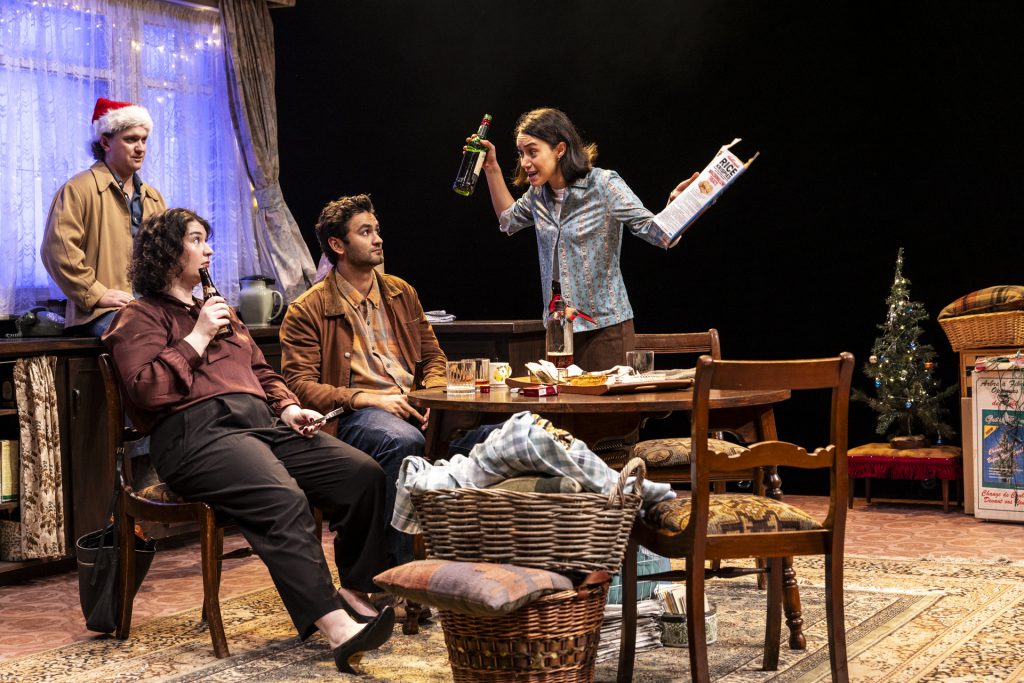
Yet, despite the cast’s collective strength, it’s Philip Lynch who leaves the biggest impact. His portrayal of Harry as the bumbling Briton, ignorant of Irish religious politics and unable to hold his liquor, is so damn good. He has the audience in stitches before his posh drawl lets a sentence end. His Harry is funny even when nothing is happening; the mere anticipation of what will come is enough. For a character who should really be secondary to the others, it’s remarkable that Lynch has been able to do the opposite.
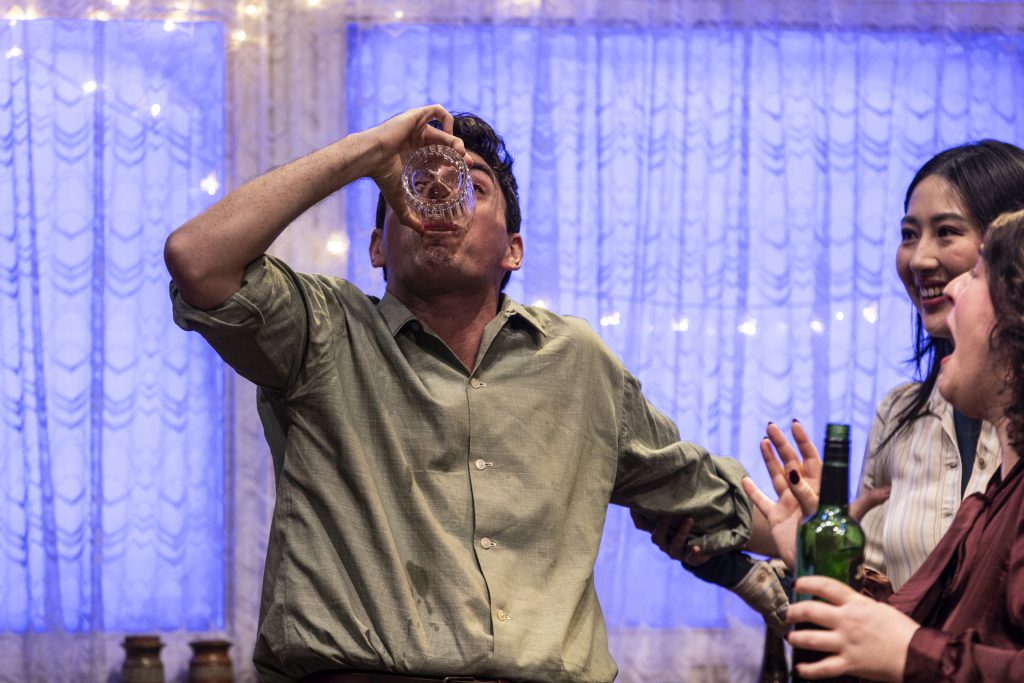
Ultimately, Never Closer is a strong show. Through its humanity, it tells a gripping story. And when all the craic, grief, and whiskey runs out, what’s left is touchingly introspective.
